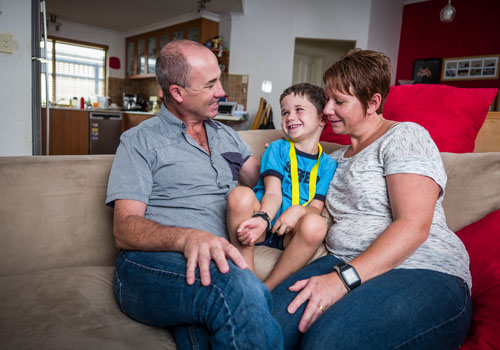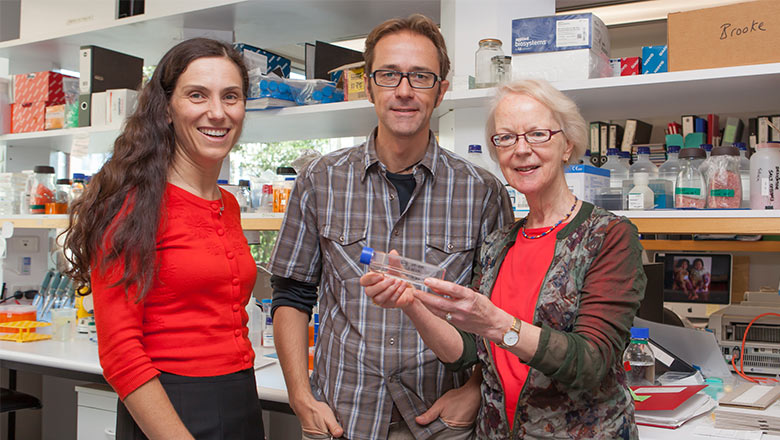Search
Showing results for "1"

News & Events
Mental health researcher recognised in prestigious publication awardDr Nicole Hill and a team of co-researchers from Orygen have received the 2021 Medical Journal of Australia (MJA) award for Excellence in Medical Research.

News & Events
Australia’s first DNA-based COVID-19 vaccine study set to begin at The Kids Research Institute AustraliaAustralia’s first needle-free, gene-based COVID-19 vaccine study will be spear-headed in WA by The Kids Research Institute Australia thanks to almost $6 million in Coronavirus Research Response funding announced by Health Minister Greg Hunt.

News & Events
The hidden burden of diabetesWhen Jodie and Brad Scott welcomed their fourth child Heath into the world, they were prepared for the many sleepless nights that come with caring for newborns.

News & Events
A cell change that drives leukaemiaIt is now known that the HOX11 gene is permanently activated in the leukaemia cells and it drives the disease.
News & Events
Experts gather for Aboriginal Immunisation WorkshopExperts in Aboriginal infectious disease research are in Perth this week for the National Indigenous Immunisation Research Workshop (November 7-8).
News & Events
Further evidence of testosterone link to autismA new study from Perth's The Kids for Child Health Research has uncovered more evidence of a link between early testosterone levels and autism.
News & Events
Children’s language not affected by stress in pregnancyfindings from the Telethon Institute for Child Health Research that show relatively common stressful events during pregnancy do not have a long term impact
News & Events
Quitting smoking in pregnancy good sign for child behaviourLong term benefits for a child if their mother quits smoking even after the pregnancy are established.
News & Events
Ear infections linked to passive smokingA new report from Perth's The Kids for Child Health Research has found a strong link between childhood ear infections and exposure to tobacco smoke.
News & Events
Pool fencing laws will save toddlersThe Kids for Child Health Research congratulates the WA State Government on its decision not to water down pool fencing legislation.
